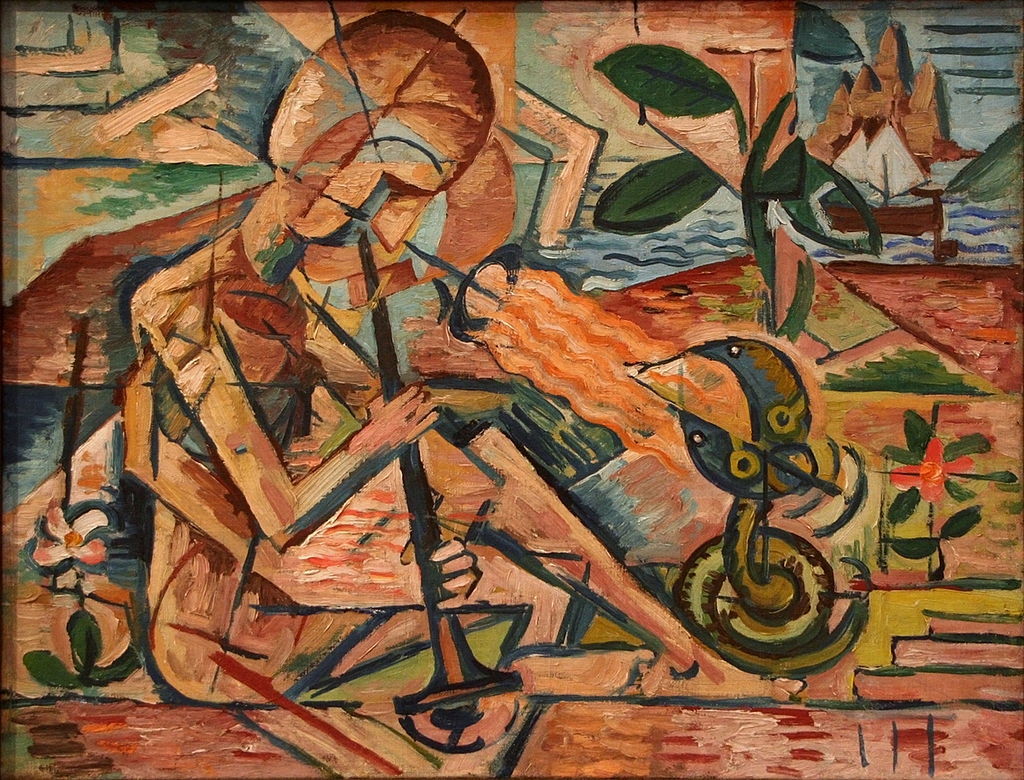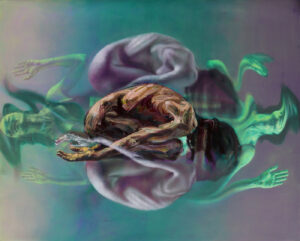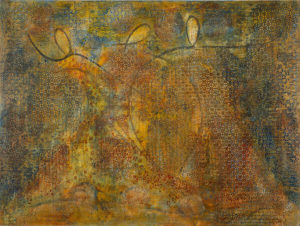
Pádraig Ó. Tuama, the editor of the new poetry anthology Poetry Unbound, 50 Poems to Open Your World, speaks to TMR from Belfast, Ireland. This inspiring collection presents fifty poems about what it means to be alive in the world today. Each poem is paired with Pádraig’s commentary offering personal anecdotes and generous insights into the content of the poem, such as the essay on poet Imtiaz Dharker, which we feature below. Some of the other poets included are Hanif Abdurraqib, Ocean Vuong, Patience Agbabi, Raymond Antrobus, Margaret Atwood, Ada Limón, Kei Miller, Roger Robinson, Lemn Sissay, and Layli Long Soldier.
Essay on Imtiaz Dharker’s poetry excerpted from Poetry Unbound.
Pádraig Ó Tuama
Sometimes a poem’s story is in its shape as well as its sound and syntax (syntax meaning words and their order; I said syntax because I love repeated S sounds; I’m a sucker for sound). So, thinking of shape, this poem by the British-Pakistani poet Imtiaz Dharker can be looked at sideways. Turn the page so that the left-hand margin forms a straight horizontal. What do you see? I see a large and gradual downward slope, followed by a slope that ends with a cliff and a gap and an outcrop of rocks. What are they? Ski slopes? Hills rolling down to the sea? Maybe it’s a print-out from a machine meant to listen to the heart. Turn the page right-way up and look again: perhaps it’s half a tornado, or a fragment of a heart.
This gorgeous love poem is written from Imtiaz Dharker to her late husband Simon Powell, who died in 2009. They were both in their fifties when they married; he was already living with cancer, and died a few years later.
The title of this poem, two short sentences — “Don’t Miss Out! Book Right Now for the Journey of a Lifetime!” — sounds like an advertisement from a travel company. The exclamation marks at the end of each sentence add a note of urgency, or comedy. The poem begins with that kind of urgency too: with the holiday, the options, the accommodation and travel, the changed plans, the packing . . . Then, so early in the poem, there’s a turn, and all urgency glides away: “Then I look at you standing here / in this pale grey light.” The allure of a destination and all the busyness that getting to a destination brings are undone in this gaze, right on the cusp of departure. In the lines “think that I have miles and miles / to go before I know you” Imtiaz Dharker echoes Robert Frost’s line: “And miles to go before I sleep.” But her poem celebrates arrivals: instead of unreachable destinations, the lovers reach for each other; instead of unknown lands they have “each other’s endless landscapes to explore.” Wherever they could have gone — a lake, Paris, Machu Picchu — they have other ways to make each other lightheaded. The love in this poem makes making love seem new again, with all the privacy and intimacy it deserves.
In “Don’t Miss Out! . . .” Imtiaz Dharker isn’t shouting “this is a poem about sex in midlife,” but indeed it is. The couple in the poem are left dizzy and breathless. Away from the glare and glitz and manipulation in the Buy this Experience! Don’t Miss Out! of the title, the poem offers a powerful and sensual thrust of its own. It’s a delicious alternative to chasing experience as if time’s running out.
Imtiaz Dharker is skilled in poetry, painting, and film directing. You can see her visual interests in the shapeliness of this poem — perhaps it’s a sand-filled hourglass; a reminder too that time isn’t eternal. As the poem’s stanzas narrow there’s a shedding of layers, a narrowing down, a focus. This 33-line poem has only six complete sentences within it, some of them long, some very short. To read this poem aloud requires modulation of breath and lungs — in contrast to the clipped, imperative sentences of the title. Maybe the shape of the poem is the sound of breath after climax, bodies collapsing into each other. Certainly breath is a theme: dizzy altitudes and lightheadedness, thin blue air and breathlessness.
This poem is an elegy, from the ancient Greek word elegos, meaning a song or poem of lamentation. The shape of the poem might tell of things running out, but the breath and breadth of the poem is of fulfilment, satisfaction, body and desire and connection and exploration. In Dharker’s brilliant hands, the elegiac poem is one that bursts with life and spontaneity.
The word “you” is present throughout this poem, especially in the first half: “I look at you,” “miles / to go before I know you,” “become familiar with you,” “I seek out your shore, you stalk my / tigers,” “your / kiss,” “your mouth.” In the second stanza, the language of their lovemaking moves from you to we/us. However, the you returns in the final sentence:
You Are Here
The capital letters for these three words, as well as the italics, make the words stand out. Wish you were here! is what’s imagined to be said in postcards. There’s no wishing in this poem; there’s pure being. Knowing that Dharker’s husband had already died a few years before this poem was published, I see the three final words of the poem as a memory, as a moment of missing him, as a moment of feeling him, right in the here, right in the now. The poem’s final line is just one word: Here. And Here is where the poet is, too, in the wake of her lover’s sad death, with these glad memories of big plans being spontaneously interrupted by nothing more than just being with one another. The poem spins itself into a solitary word, a word of arrival, a word of presence. Solitary, yes, but not abandoned.
Don’t Miss Out! Book Right Now for the Journey of a Lifetime!
Imtiaz Dharker
We plan a holiday, a mini-break, a long weekend, a stolen week. We trawl the options, seek out the perfect combination of hotel and flight, the distant beach, the extra night, consider packing suitcases, examine the travel clothes and lotions, get as far as tying on our baggage tags. Then I look at you standing here
in this pale grey light and think that I have miles and miles to go before I know you, and as in any unknown country
I may wish to travel to your sites, and make repeated visits to become familiar with you. We look out of the bedroom window at the usual view and think
we may prefer to linger on here, where we have each other’s endless landscapes to explore, where I seek out your shore, you stalk my tigers and the world will say it lost us.
This will be our stolen week, your kiss my break, my eyes your lake your mouth will be my Paris.
And as for Machu Picchu, there are other routes than dizzy altitude
to render us light- headed, other ways than
thin blue air to leave
us
breathless, and we are here, not away not far but where we want to be, still where we were, this red arrow pointing straight at
who we are, and
You Are
Here
Imtiaz Dharker was born in Lahore, Pakistan, and raised in Glasgow. She is a former Poet in Residence at Cambridge University Library. She was the recipient of the Queen’s Gold Medal for Poetry in 2014, and the Cholmondeley Award in 2011. Her poems are included on the national curriculum in the UK, and she has performed to audiences of students all over the country. Her most recent poetry collection, Luck is the Hook, was published by Bloodaxe Books in 2018.






















